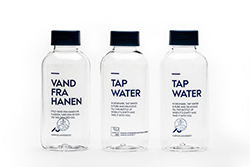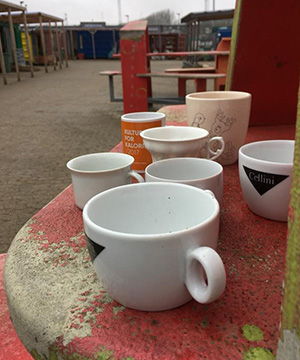Procurement
Vegetarian catering for meetings and conferences

Challenge
Aarhus University wants to reduce its carbon emissions in 2025 by 35 per cent compared with the 2018 baseline.
Solution
It has been decided that vegetarian food should be the standard choice when placing a catering order for meetings and conferences financed by AU. It is still possible to order alternatives with meat, but you must actively choose to do so. The initiative came into force in August 2022 and is a part of AU’s green transition, and the goal is to make AU’s catering more climate friendly, since the carbon footprint from meat-based dishes is significantly larger than from vegetarian dishes.
The initiative only covers catering for meetings, conferences and similar events that are arranged and financed by AU. This also applies to conferences/seminars hosted by AU that do not take place on campus.
Further information
Read more on the webpage
Sustainability in AU canteens
Challenge
Aarhus University wants to reduce its carbon emissions in 2025 by 35 per cent compared with the 2018 baseline.
Solution
In order to ensure sustainability in AU canteens, AU has encouraged the canteens to propose climate-friendly measures to reduce their carbon emissions: A sustainability clause has been included in the contract with the cafeteria provider selected in the canteen tendering procedure in 2020.
Moreover, a sustainability policy has been developed (including a policy for food waste) as a competitive parameter in a tendering procedure.
Linguistics students stop using disposable cups
Challenge
In 2019, students in ViGør (the social and academic committee for linguistics students) agreed that they wanted to avoid using plastic cups during their weekly events. They therefore discussed various other options.
Solution
The ViGør committee concluded that the best solution is that the participants bring their own cups. That way they can drink from their favourite cup, while the committee avoids buying disposable cups for each event. The committee decided to always remind the participants to bring their own cups to the events.
Result
The students welcomed the initiative, and most of them are good at remembering to bring their own cups. If the students forget to bring a cup, it is possible to borrow one. However, the cup available for borrowing has jokingly been called “the cup of shame”.
Water from the tap

There is a great demand for (more) sustainable conferences. AU Events and Communication Support and the canteens at AU are working together on initiatives to meet this demand. One of the challenges they are working to address is that an average conference participant uses about two single-use plastic water bottles per day. The goal was reduce the number of single-use plastic bottles used, and if possible to eradicate them completely.
Solution
To minimise consumption of single-use bottles, a reusable, high-quality AU water bottle was developed. Conference participants receive one of these bottles at the beginning of a conference. At the same time, central water fountains were established. The water comes directly from an underground water line and is therefore always cool.
Result
According to an evaluation by AU Events and Communication Support, conference bookers are generally very satisfied with this arrangement, and many conference participants take the reusable AU bottles home for reuse at work at home.There is also a clear financial saving by using an AU bottle per person and tap water instead of disposable bottles.
An additional benefit of this initiative is that the branded water bottles become a form of AU ‘product placement’ when participants take them home. In addition, the university has made considerable reductions in single-use plastic bottles and energy consumption (no cooling of water plus a reduction in plastic consumption).
Additional information
- For more information about this initiative, contact Special Consultant Lone Jørgensen, loj@au.dk
- Read more about sustainability and conferences
Free recycled mugs from Reuse

Challenge
At the Nobel Park library, there were no mugs available to students, forcing them to buy a polystyrene mug in the cafeteria which they would subsequently throw out.
Solution
As a solution to the problem, we visited Reuse to pick up free mugs which were then placed in kitchens at AU for free use.
Result
The mugs are used frequently, and we thus save some of the planet’s resources from being used for polystyrene or plastic mugs that can only be used once.
Additional information
Read more about Reuse.